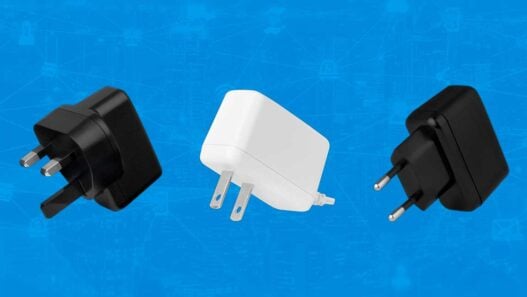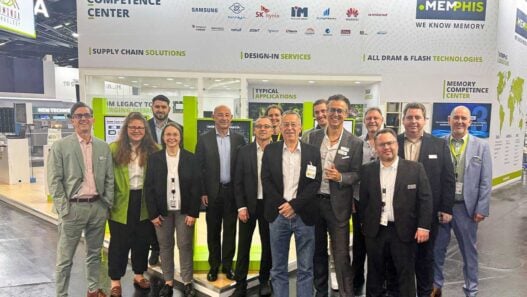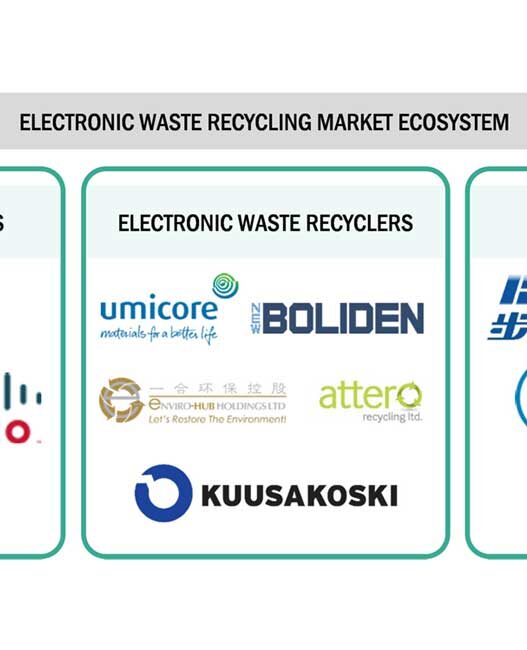What is RAIN RFID
RAIN RFID technology possesses distinctive features that set it apart in the realm of wireless communication and item tracking. These tags are passive, meaning they operate without a battery, which reduces maintenance and lowers costs. They can also be read from distances up to 20 meters and provide rapid data retrieval. These capabilities prove invaluable in scenarios requiring the quick location and identification of multiple items, particularly when these items are not stationary. Such efficiency and flexibility make RAIN RFID an essential tool in logistics, retail, and other industries where dynamic item tracking is crucial.
“The opportunities for RAIN RFID to deliver value are almost infinite across a wide variety of industry sectors,” explains Aileen. “In the retail industry, for example, RAIN RFID tags are most commonly used for inventory management and supply chain visibility. Our members report that they can achieve 98%+ inventory accuracy using RAIN RFID tags, which enables smarter inventory decisions. As a result, retailers only order what they need, can sell everything they have and minimise waste heading to landfill. They can also track stock’s journey from the warehouse to distribution centres to in-store, using that data to make any necessary supply chain adjustments.”
RAIN RFID technology has recently been adopted in the tyre industry to meet growing regulatory demands for improved traceability, data reliability, and efficiency throughout a tyre’s lifecycle. By embedding RAIN RFID tags into the tyre walls, immediate access to critical information such as the materials used, manufacturing date, and the vehicles it has been fitted on is enabled when scanned. This data-driven approach facilitated by RAIN RFID helps the tyre industry to optimise the lifespan of each tyre and effectively manage processes such as end-of-life, retreading, and recycling.
Continues Aileen: “In reality, we now see deployments of RAIN RFID emerging in almost every industry sector – logistics, healthcare, pharmaceuticals, smart manufacturing, aviation and space, automotive, energy production and so on.”
Driving sustainability
“We’re seeing a rise in regulation aimed at improving sustainability and increasing supply chain transparency – such as the EU’s incoming Digital Product Passport, which requires data to be collected, stored and easily shared throughout a product’s lifecycle. More than a quarter of surveyed RAIN Alliance RFID users (26%) identified these ‘traceability regulations’ as the most relevant to their business and users also ranked ‘improving supply chain traceability’ as their company’s top sustainability priority,” says Aileen.
RAIN RFID tags enhance organisational traceability by storing data about a product’s manufacturing date, the materials used, and its expected lifespan. When companies scan these tags, they can access this information to support sustainability goals, guiding strategies on supply chain transparency and efficiency, waste management, as well as product sorting and recycling. This enables more informed decision-making and promotes environmental responsibility.
Aileen explores: “At present, applications of RAIN RFID are focused on business-related objectives such as inventory management, stock control and logistics. Of the users surveyed, 26% use RAIN RFID for warehousing and distribution, 25% for supply chain and 23% for retail point of sales purposes. The data collected in these existing applications can also contribute valuable insights to inform sustainability strategies, and there is evidence that this is taking place – though the process is in its infancy.
“In many companies, there remains a disconnect between those setting sustainability goals and those implementing RAIN RFID deployment. This is highlighted as one of the key findings of the new report from the RAIN Alliance Sustainability Working Group, ‘Bridging the Gap – Connecting Corporate Sustainability with RAIN RFID’, which showed that: ‘RAIN RFID is a critical technology for decisions that balance people, the planet and profit. But not everyone realises this yet…!’ Respondents to the RAIN RFID user survey highlighted how a lack of team resources, lack of understanding, conflicting priorities and a lack of control are all contributing factors to the absence of sustainability-related data collection in their use of RAIN RFID. There are clearly hurdles yet to overcome, however, if the correct tools are put in place to lower the burden and educate teams and partners, many of these friction points can be and already are being addressed by organisations.”
RAIN RFID seeing success
“One of the case studies highlighted in our newly published Sustainability report was from IFCO, a B2B company offering reusable packaging-as-a-service,” enthuses Aileen. “Instead of each customer independently manufacturing and managing their packaging, IFCO provides a standardised system where clients share and reuse the same type of packaging in the fresh produce supply chain.”
IFCO operates on a model that emphasises shared resources, global collaboration, and a circular economy. The company employs RAIN RFID technology to ensure a consistent flow of reusable packaging containers throughout its network. By outfitting these reusable crates with RAIN RFID tags, IFCO can accurately track their movement and usage, gathering crucial data to optimise environmentally-friendly supply chain management. Furthermore, IFCO is investigating how this improved visibility could help reduce food waste by ensuring that produce is delivered to the right location, at the right time, and in the best condition.
Reining in RAIN RFID
To round up, Aileen had this to say: “This wide range of emerging use cases for RAIN RFID is driving rapid global adoption of the technology, with shipments of RAIN RFID tag chips surging to 44.8bn in 2023, a year-on-year growth of 32%. As more organisations adopt the technology, both the usage and value of RAIN RFID data are expected to grow in support of both sustainability and, ultimately, the creation of truly circular economies.”
RAIN RFID technology is proving to be a pivotal advancement in the realm of sustainable business practices. As detailed by Aileen Ryan, President and CEO of RAIN Alliance, these innovative tags are not only enhancing efficiency across various industries but are also driving substantial environmental benefits. In the retail sector, for instance, the use of RAIN RFID tags has enabled unprecedented inventory accuracy exceeding 98%, which in turn minimises waste and optimises supply chain operations. This level of precision ensures that retailers order only what is needed, significantly reducing the potential for excess goods ending up in landfills.
Moreover, RAIN RFID’s adoption within the tyre industry exemplifies its critical role in enhancing sustainability through improved traceability and efficiency. By embedding these tags into tyres, manufacturers and consumers gain immediate access to essential data, such as materials used and the tyre’s lifecycle, which facilitates effective recycling and waste management processes.
The broader application of RAIN RFID across diverse sectors, including logistics, healthcare, and energy, underscores its versatility and the wide-reaching potential to support sustainable practices globally. As RAIN RFID continues to evolve and integrate into more industries, its impact on environmental sustainability is expected to expand, offering a promising outlook for the future of eco-friendly business operations.













